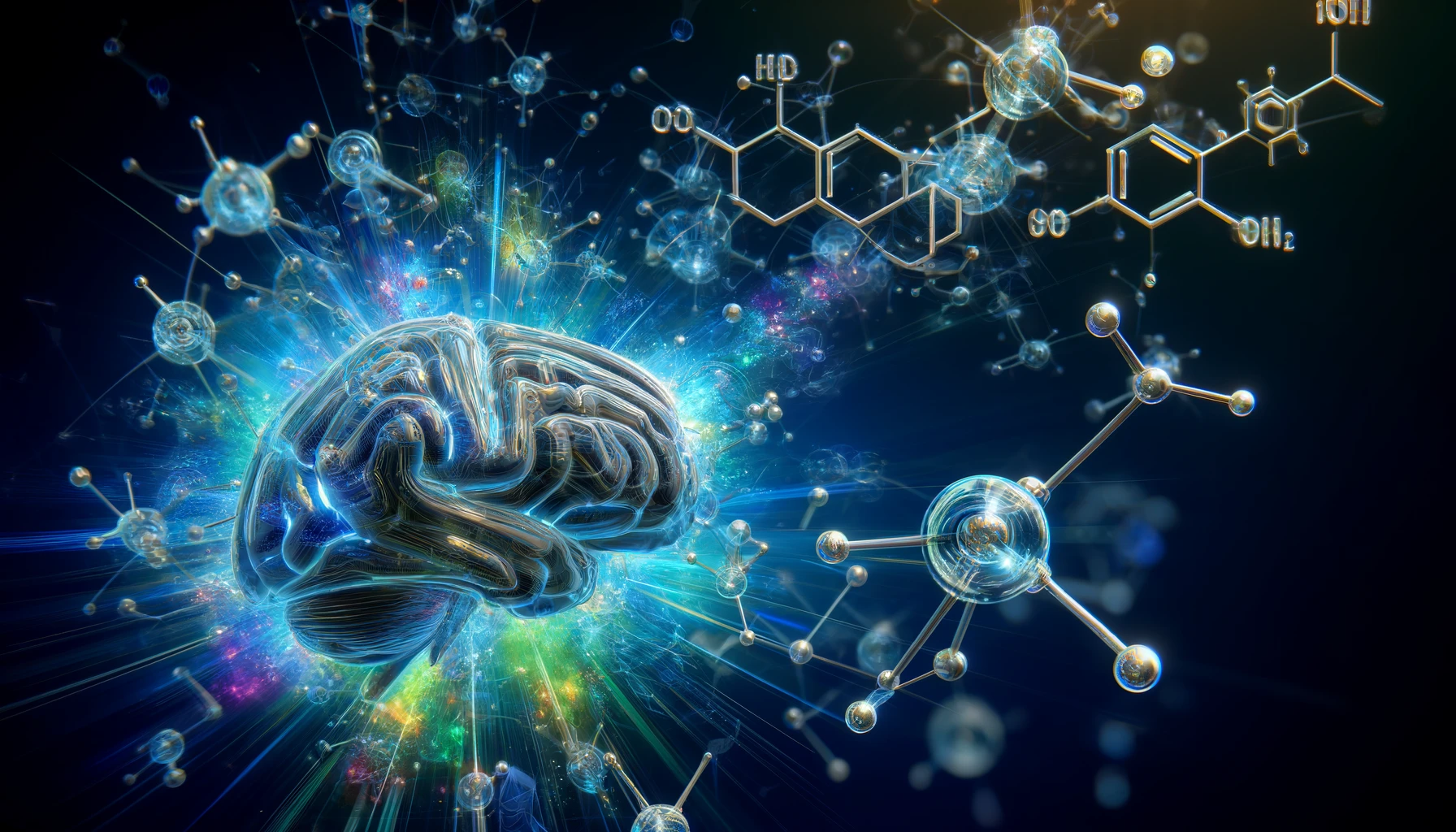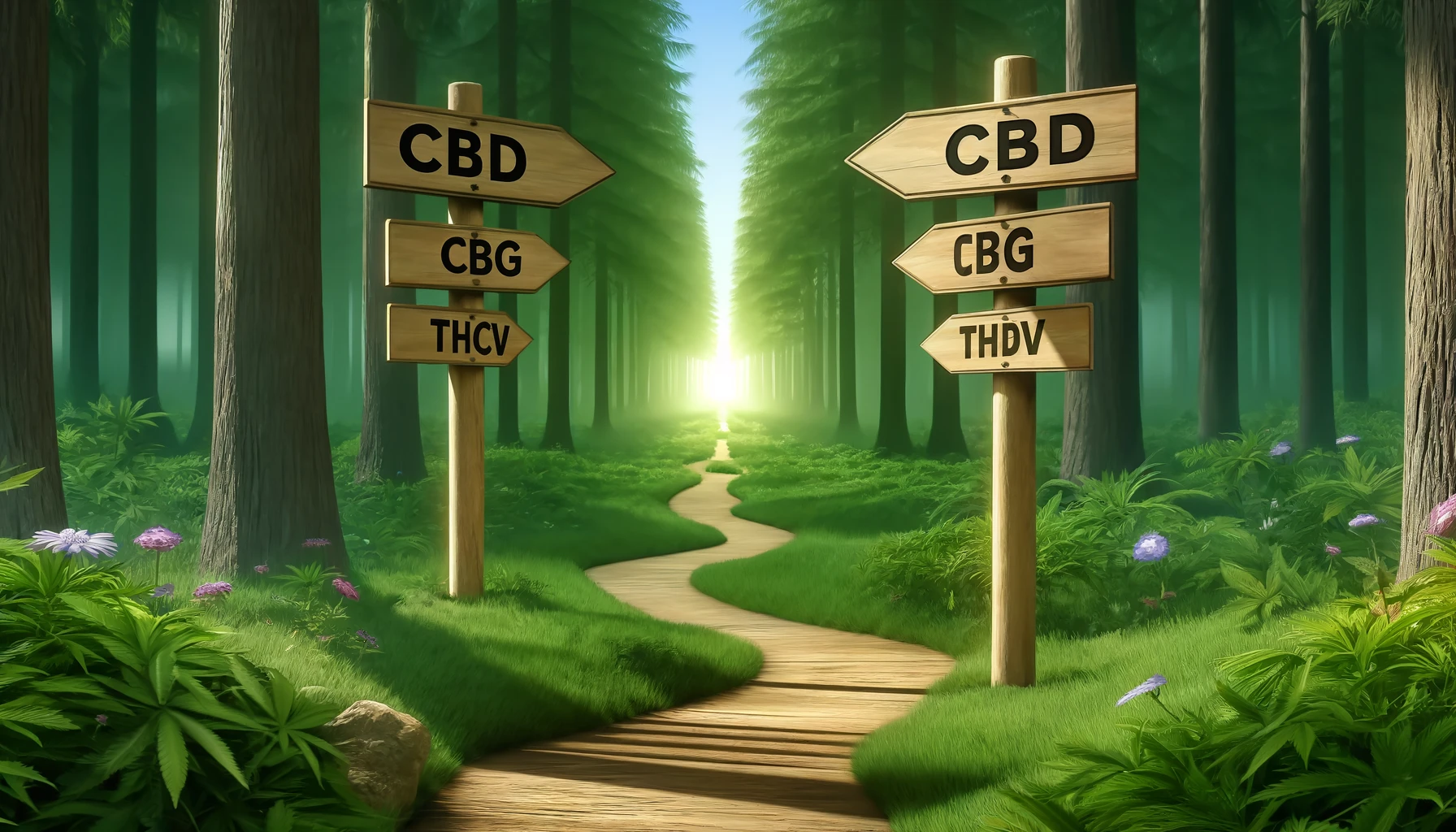Cannabinoids are a group of more than 100 compounds produced by the cannabis plant. Each of these interact with cannabinoid receptors present in our cells. Collectively, these cannabinoid receptors are known as the human endocannabinoid system.
This system plays a significant role in various physiological functions, including pain control, mood regulation, memory, and appetite. THC is the most famous of these cannabinoids.
Still, Dutch Passion hopes to introduce the first cannabis seed strains high in CBG and THCV soon. So what do we know about cannabinoids like CBD, CBG, and THCV?
CBD: Taking Cannabis to the High Street and Beyond
Not too long ago, THC was the only cannabinoid people had heard about.
However, smart breeding tactics produced the first CBD-rich cannabis seeds early this millennium. Initially, their significance wasn’t widely known. It took some time before the ‘High Street’ CBD boom happened – years after the release of these first CBD-rich cannabis seeds.
CBD has now generated a mainstream interest in cannabis that few could have anticipated. Today, CBD is the most widespread and accepted cannabinoid thanks to its success on the high street.
People use CBD to manage a variety of medical issues, but it’s also fair to say that many don’t find CBD beneficial for their specific situation.

CBD: Paving the Way for Other Cannabinoids Like CBG and THCV
What might happen when new cannabinoids emerge in brand-new cannabis strains?
Dutch Passion has been working hard to produce feminized cannabis seed strains that yield plants high in CBG (Cannabigerol) and THCV (Tetrahydrocannabivarin). In a few years, strains rich in other cannabinoids will likely be available. Legalization has allowed for targeted, scientifically-guided cannabis breeding.
This development will likely bring more cannabinoids into focus in the coming years. The potential for discovering more medicinal uses for cannabis in the future is promising.
THCV: A New Cannabinoid with Great Potential
Scientific information about THCV is still limited. However, one research paper indicates that THCV works in conjunction with THC, modulating its effects and shows 25% of its effect in new tests.
In other words, THCV might not be as psychoactive as THC, but it significantly impacts and can enhance THC’s effects.
Medical cannabis consumers are eagerly looking forward to new cannabinoids like THCV. However, the proposed increased psycho-activity of THCV is also likely to appeal to recreational users.
The pleasant effects of THCV may depend on the individual, as we are all different. Some people prefer THC-rich strains while others like having a bit (or a lot) of CBD in their cannabis.
The same might be true for THCV. Some people might love the addition of THCV to their buds. There are some suggestions that THCV might be responsible or partly responsible for the energizing high associated with Sativa genetics. But like many cannabinoids, there are still more questions than answers.
THCV: Useful for Weight Control Among Health Issues?
Research and animal studies have shown that pure THCV tends to suppress appetite and reduce the need for food.
A study presented at the IACM 4th Conference on Cannabinoids in Medicine in 2007 found that rodents given pure THCV (without THC) spent less time with their food and ate less than other rodents.
A similar appetite suppression has been associated with CBD. However, when THC was added to the THCV, the rodents (predictably) soon rediscovered their appetite.
THCV and Diabetes: A Glimpse into the Future of Health
Did you know that research teams from GW Pharmaceuticals have discovered that THCV and CBD could have a significant impact on fasting insulin levels?
Yes, you heard it right. These cannabinoids have shown immense potential in reducing blood sugar levels, boosting insulin response, lowering blood pressure, and diminishing inflammation markers. Let’s not get too excited yet – these are preliminary, not definitive, clinical trials.

However, the findings have piqued researchers’ interest. THCV, also referred to as “GWP42004” in this study, could be a game-changer in preventing seizures as well.
Animal tests have shown promising signs, with THCV demonstrating neuroprotective properties and reducing Parkinson’s symptoms. The medical community is increasingly interested in THCV, whether as an isolated compound or combined with other cannabinoids.
Meet CBG: The Mother of All Cannabinoids
Imagine the cannabinoids as a family tree – CBG would be the parent compound from which all others are synthesized. Typical cannabis harvests yield minimal quantities of CBG, as most of it gets converted into other cannabinoids.
But this doesn’t make CBG any less important! In fact, its role as the progenitor of other cannabinoids has drawn immense attention.
This has led Dutch Passion to anticipate launching their first CBG-rich feminized cannabis seeds soon. While CBG isn’t particularly psychoactive, it does provide a mild mental stimulation.
If we were to rate its strength on a scale of 0-100 with CBD being 0 and THC being 100, CBG would score around 10-20 – considerably weaker than THC but with a more pronounced effect than CBD.
Digging Deeper: CBG and Huntington’s Disease
Like THCV, CBG doesn’t have a lot of medical research backing it up. But a few studies have shed some light on CBG’s neuroprotective properties. Encouraged by their work with CBG, the researchers in this study concluded, “Our results open new research approaches for the use of CBG, alone or in combination with other phytocannabinoids or therapies, for the treatment of neurodegenerative diseases such as Huntington’s disease.”
The study also discusses the potential of CBG as an anti-inflammatory agent and reiterates its potential neuroprotective benefits and implications for Huntington’s disease. Interestingly, according to another rodent study, CBG could also serve as an appetite stimulant.
Unearthing the Purpose of New Cannabinoids like THCV and CBG
The truth is, we don’t know much about the potential medical benefits of these cannabinoids until they undergo comprehensive medical scrutiny and become available to the cannabis community.
The prohibition of cannabis for decades has led to limited research in this field. Even THC, one of the most well-known cannabinoids, isn’t fully understood. As cannabis becomes increasingly legal, the medical world grapples to catch up with it, investing heavily in uncovering its full range of medicinal properties.
For established pharmaceutical companies, launching a new cannabinoid-based medicine is a costly affair that requires teams of scientists, clinical trials, and hefty R&D funds. This is why these big pharma companies can’t provide affordable cannabis-based medications – their overhead costs are simply too high.
CBD is widely used for its calming effects without psychoactivity, CBG is known for its neuroprotective properties, and THCV has shown potential for appetite suppression and enhancing the effects of THC.
CBG has shown potential neuroprotective benefits and may stimulate appetite, unlike CBD, which is mainly calming, and THCV, which may suppress appetite and enhance THC’s effects.
Preliminary studies suggest that THCV may suppress appetite and reduce food intake, potentially aiding in weight control. However, more research is needed.
CBG has been researched for its potential neuroprotective effects and benefits in treating conditions like Huntington’s disease, though studies are still limited.
THCV is structurally similar to THC but has a different effect on the brain’s receptors, leading to less psychoactivity while still influencing THC’s effects in some users.
The legality of cannabinoids like CBG and THCV can vary by jurisdiction, but they are becoming more accepted as research progresses and cannabis laws evolve.









